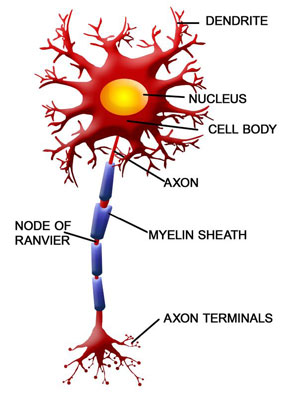
“A Randomized Trial of Two Promising Computer-Based Interventions for Children with Attention Difficulties.”, Journal of Abnormal Child Psychology, D.L. Rabiner, et. al
“Changes After EEG Biofeedback and Cognitive Retraining in Adults with Mild Traumatic Brain Injury and Attention Deficit Hyperactivity Disorder.”, Journal of Neurotherapy, T. Tinius, et. al
“Computerized Cognitive Training for Severely Emotionally Disturbed Children with ADHD.”, Behavior Modification, S.E. Slate, et. al
“Computer-assisted cognitive training for ADHD.”, Behavior Modification, D.B. Kotwal, et. al
“Effects of Two Treatment Techniques on Delay and Vigilance Tasks with Attention Deficit Hyperactive Disorder (ADHD) Children.”, The Journal of Psychology, C.W. Hall, et. al
“Computerized Training of Working Memory in Children with ADHD–A Randomized, Controlled Trial.”, Journal of the American Academy of Child and Adolescent Psychiatry, T. Kingberg, et. al
“A Workout for Working Memory”, APA Monitor, S. Dingfelder
“Training The Brain: Cognitive Therapy as an Alternative to ADHD Drugs”, Scientific American, G. Sinha
“Effects of Cognitive Training on Academic and On-Task Behavior of Hyperactive Children”, Journal of Abnormal Child Psychology, M.I. Cameron, et. al
“Psychology of Computers: XIV. Cognitive Rehabilitation Through Computer Games”, Perceptual and Motor Skills, S. Larose, et. al
"The effectiveness of computerized cognitive training and neurofeedback treatment in improving the functioning of ADHD children", In Preparation, A. Fine, et. al
"Improving fluid intelligence with training on working memory", Proceedings of the National Academy of Sciences of the United States of America, S.M. Jaeggi , et. al
"Computer-Based Attention Training in the Schools for Children With Attention Deficit/Hyperactivity Disorder: A Preliminary Trial", Clinical Pediatrics, N.J. Steiner , et. al
“Psychological Interventions for Multiple Sclerosis”, Cochrane Database of Systematic Reviews, P.W. Thomas, et. al
“Computer-assisted cognitive rehabilitation reduces negative symptoms in the severely mentally ill”, Schizophrenia Research, D.M. Bellucci, et. al
“Computer-Assisted Cognitive Rehabilitation of Chronic Psychiatric Inpatients”, Computers in Human Behavior, Philip C. Burda, et. al
“Training Effects of Computer-based Cognitive Training in Patients with Schizophrenia”, Schizophrenia Research, S. Bender, et. al
“The Effects of Neurocognitive Remediation on Executive Processing in Patients with Schizophrenia”, Schizophrenia Bulletin, T. Wykes, et. al
“Cognitive Remediation of Working Memory Deficits: Durability of Training Effects in Severely Impaired and Less Severely Impaired Schizophrenia”, Acta Psychiatrica Scandinavica, M. Bell, et. al
“Cognitive Training of Verbal Memory using a Dichotic Listening Paradigm: Impact on Symptoms and Cognition”, Acta Psychiatrica Scandinavica, J. M. Fiszdon, et. al
“Effects of Neurocognitive Enhancement Therapy in Schizophrenia: Normalisation of Memory Performance”, Cognitive Neuropsychiatry, M. Bell, et. al
“Management of Adult Stroke Rehabilitation Care”, Stroke, P. Duncan, et al
“Cognitive Rehabilitation of Memory Following Stroke. Theory, Practice, and Outcome”, Advances in Neurology, G.M. Cuesta
“Changes After EEG Biofeedback and Cognitive Retraining in Adults with Mild Traumatic Brain Injury and Attention Deficit Hyperactivity Disorder”, Journal of Neurotherapy, T. Tinius, et al
EEG Changes on TBI Patients During Cognitive Tasks after Cognitive Rehabilitation”, Journal of Neurotherapy, S. Stathopoulou, et al
“Computerized Errorless Learning-based Memory Rehabilitation for Chinese Patients with Brain Injury: A Preliminary Quasi-experimental Clinical Design Study”, Brain Injury, Z.L.Dou, et al
“A Rehabilitative Program for Central Executive Deficits after Traumatic Brain Injury”, Brain and Cognition, A. Serino
“Beneficial Effect from a Cognitive Training Programme on Children with Acquired Brain Injuries Demonstrated in a Controlled Study”, Brain Injury, I.V. Hooft, et al
“Evidence Based Cognitive Rehabilitation: Recommendations for Clinical Practice", Archives of Physical Medicine and Rehabilitation, K.D. Cicerone, et al
“Cognitive Training in Home Environment”, Brain Injury, L. Boman, et al
“Training of Executive Functions in Parkinson’s Disease”, Journal of Neurological Sciences, G. Sammer, et al
“Cognitive Training in Alzheimer’s Disease: A Meta-analysis of the Literature”, Acta Psychiatrica Scandinavica, D.I. Sitzer, et al
“Long-term Improvements in Cognitive Performance through Computer-assisted Cognitive Training: A Pilot Study in a Residential Home for Older People”, Aging and Mental Health, V.K. Gunther, et al
“Cognitive-Training Programs for Older Adults: What Are they and Can they Enhance Mental Fitness?”, Educational Gerontology, G. Thompson, et al
“Older Adults’ Strategic Behavior: Effects of Individual versus Collaborative Cognitive Training”, Educational Gerontology, J. Saczynski, et al
“Cognitive Training and Cognitive Rehabilitation for People with Early-stage Alzheimer’s disease: A Review”, Neuropsychological Rehabilitation, L. Clare, et al
“Aging with Grace: What the Nun Study Teaches Us about Leading Longer, Healthier, and More Meaningful Lives”, Book, D. Snowdon
"The effects of multi-domain versus single-domain cognitive training in non-demented older people: a randomized controlled trial", BMC Medicine, Y. Cheng, et al
“Immediate neuropsychological and behavioral benefits of computerized cognitive rehabilitation in Ugandan pediatric cerebral malaria survivors”, Journal of Developmental and Behavioral Pediatrics, P. Bangirana, et al
“A pilot study of the neuropsychological benefits of computerized cognitive rehabilitation in Ugandan children with HIV”, Neuropsychology, M.J. Boivin, et al
Additional research studies on request...
